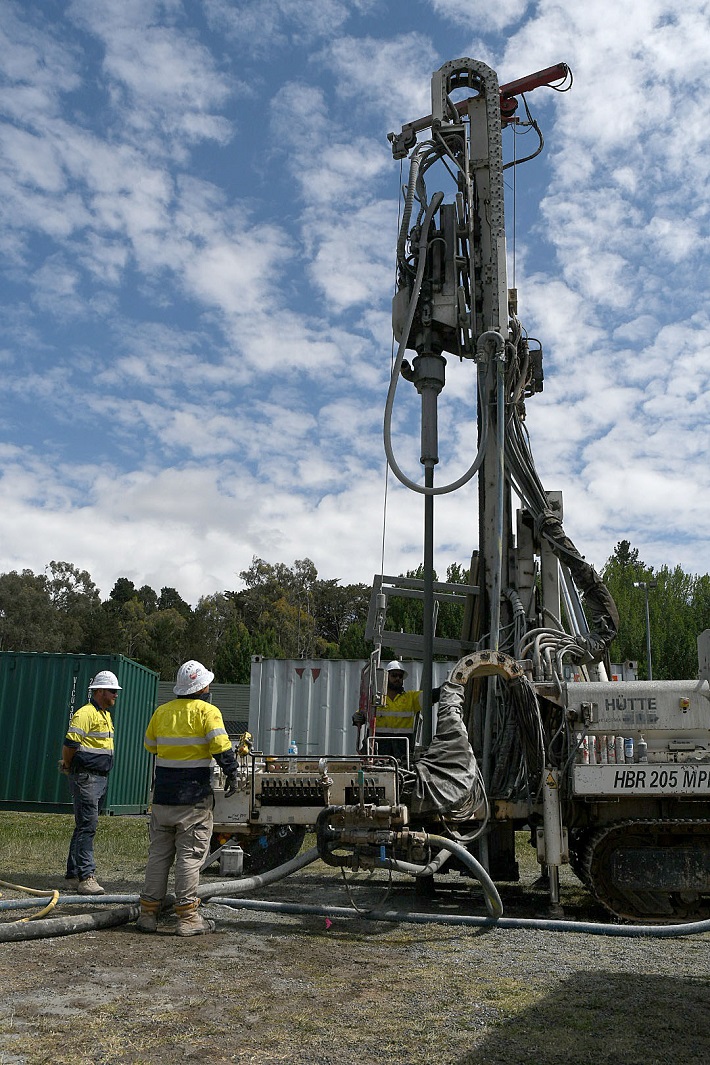Work is underway on the installation of a modern geothermal heating system for the University of New England’s indoor pool, which is currently under reconstruction.
The new system is expected to reduce SportUNE’s annual CO2 emissions by approximately 197,000kg, which is equivalent to the CO2 absorbed by 8,000 trees.
Geothermal heat pumps have become increasing popular in construction design and domestic subdivisions in Australia over the past decade due to its low energy consumption levels, durability and effectiveness in reducing carbon footprints.
UNE’s Chief Operating Officer, Peter Creamer, said the geothermal system essentially works on the principle of heat exchange.
“A network of 36 refrigerant-filled pipes will be placed in grid formation in holes 90m deep to maintain the refrigerant at a constant temperature in line with the ambient temperature of the earth. The heat generated in this way will be transferred to water from the pool through a series of heat exchanges. Gas will be used to boost the temperature where necessary,” Prof. Creamer said.
The geothermal system’s constant supply of heat is the ideal antidote to Armidale’s extreme temperature variations. While gas inputs will still be needed to heat the pool water, especially in winter, it is projected to be reduced by over 50% resulting in substantial long-term savings for SportUNE.
The reconstruction of the six-lane pool, costing more than $7 million, is expected to be completed by mid-2019. Additional building works will include the installation of a lift in the sport centre to improve accessibility for people with disability, new change rooms for both the pool and centre, and a bigger concourse area around the pool.
“Accessibility to the pool itself will be improved with the installation of in-pool stairs. We’re also removing the old concrete seats alongside the pool and replacing it with retractable tiered seating, which will increase space around the pool when needed,” Prof. Creamer said.
The geothermal heating system is one of two major projects currently underway to improve UNE’s sustainability credentials. Contracts on the solar farm development have been signed. Once this project is completed it will enable the University to produce at least half of its power for the Academic Campus via solar.


